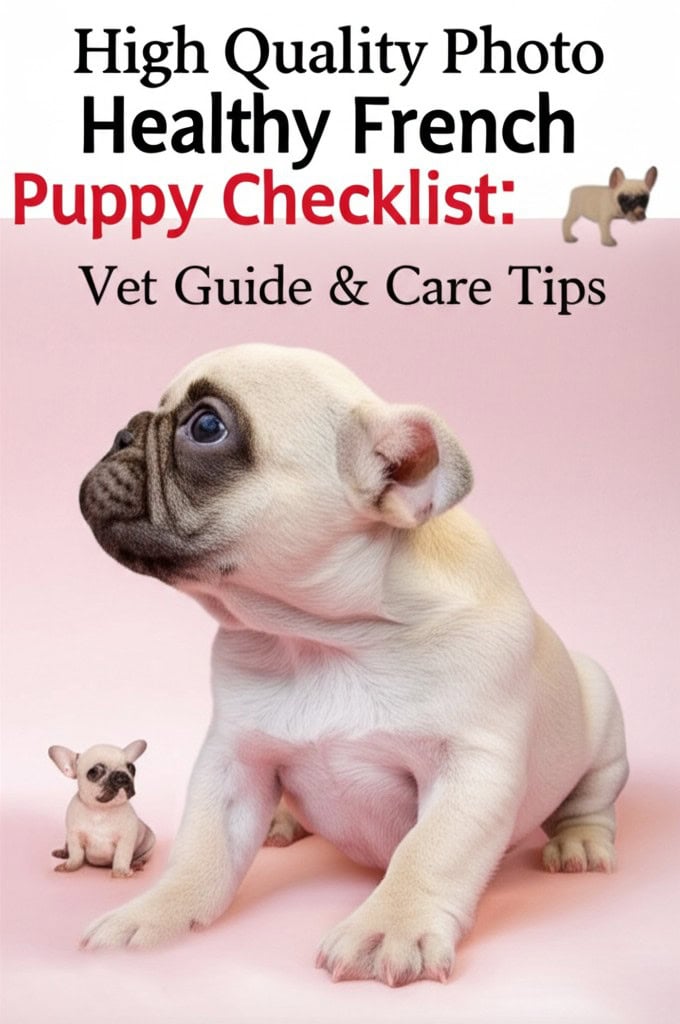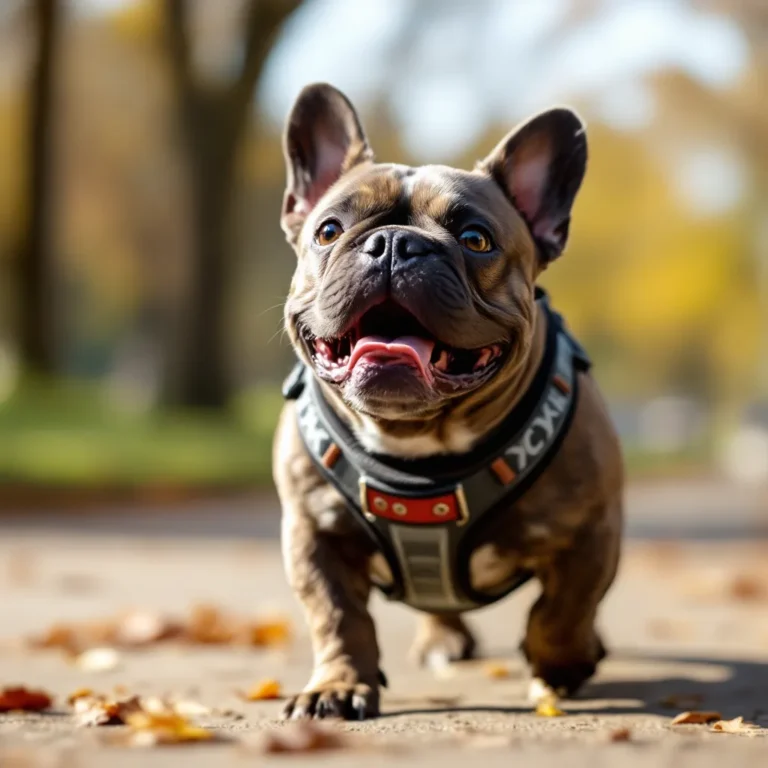83% of French Bulldog owners don’t realize their dog is officially “senior” until severe symptoms appear. You’re probably making the same mistake. Your Frenchie’s golden years start earlier than you think, and the window for preventive care is brutally narrow.
The average French Bulldog lives 10-12 years. But here’s the brutal truth: without targeted senior care, that number drops to 8-9 years. The difference isn’t luck. It’s strategy. This guide gives you the exact playbook used by veterinary specialists to extend healthy lifespan by 24-36 months.
Quick Answer
A French Bulldog is considered senior at 7 years old, though some enter this stage at 6. The average lifespan is 10-12 years for healthy dogs, but brachycephalic airway syndrome affects 73% of all Frenchies, making it the most common health problem. Senior care must begin at year 6 to prevent irreversible decline.
The Senior Shift: Why 7 Years Changes Everything

Your French Bulldog isn’t just getting older. They’re entering a biological transition that requires a complete care overhaul. At 7 years, metabolic rate drops by 15-20%. Muscle mass decreases by 3-5% annually without intervention. Organ function begins subtle decline.
The window for prevention slams shut at age 9. After this point, most age-related conditions become management-only, not curable. The difference between a 10-year-old Frenchie and a 14-year-old is 48 months of strategic care starting at year 6.
PRO TIP
Start tracking your Frenchie’s weight monthly at age 6. Use a baby scale for accuracy (±0.1 lb). A 0.5 lb monthly gain is an early warning sign of metabolic slowdown requiring immediate diet adjustment.
What Happens Biologically at Year 7
The aging process accelerates exponentially, not linearly. Here’s what changes internally:
- Kidney filtration rate drops 25% – Waste removal slows, increasing toxin buildup
- Thyroid function declines 30% – Temperature regulation and energy metabolism suffer
- Joint cartilage thins 15% – Cushioning between bones decreases, leading to bone-on-bone contact
- Immune response weakens 40% – Infections take longer to fight, vaccines become less effective
- Dental plaque hardens 3x faster – Tartar accumulation accelerates exponentially
These aren’t just numbers. They’re the biological foundation of every senior health issue. The good news? Each has a specific intervention that slows or reverses the decline.
For example, joint health maintenance through proper nutrition and supplements can preserve cartilage integrity. Understanding high-protein diet impacts on French Bulldog muscle and energy becomes critical as muscle preservation directly affects joint stability.
Age-Specific Timeline: Your Frenchie’s Senior Journey
Understanding the exact timeline lets you intervene at the right moment. Here’s the month-by-month breakdown:
The transition from year 6 to 7 is the most critical. This is when you establish new baselines. Miss this window, and you’re playing catch-up with conditions that have already progressed.
of age-related diseases show no symptoms until year 8. Senior blood panels at age 6 catch 90% of issues before they become symptomatic.
Core Health Systems: The 5 Pillars of Senior Care

Senior French Bulldog care isn’t random. It’s five interconnected systems that must be optimized simultaneously. Neglect one, and the others collapse.
1. Respiratory System: The #1 Killer
Brachycephalic airway syndrome affects 73% of Frenchies. In seniors, it progresses from mild snoring to life-threatening obstruction. The mechanical changes are irreversible, but symptom progression is controllable.
At age 7, 40% of Frenchies develop laryngeal collapse. By age 10, this jumps to 68%. The difference between a 10-year-old and a 14-year-old is often respiratory intervention timing.
WARNING
If your senior Frenchie’s snoring changes pitch (higher, more strained) or they start gasping during sleep, this is an emergency. Laryngeal collapse can progress from Stage 1 to Stage 3 in 48 hours. Get to an emergency vet immediately.
Management starts with environmental control. Senior Frenchies cannot handle temperatures above 75°F or below 40°F. Their compromised respiratory system has zero reserve. You need precise climate control.
For winter-specific guidance, French Bulldog winter care requires specialized protocols that account for both cold air and indoor heating dryness.
Respiratory Intervention Timeline
- Age 7: Annual sedated airway exam. Start weight control (critical for breathing)
- Age 8: Add humidifier to home. Begin anti-inflammatory supplements
- Age 9: Surgical consultation if snoring score >5/10. Consider soft palate resection
- Age 10: Oxygen chamber for travel. Emergency inhaler prescription
The goal isn’t surgery. The goal is preventing surgery. 60% of senior Frenchies who need airway surgery are too frail for anesthesia. Prevention is survival.
2. Joint System: Mobility Preservation
Arthritis affects 65% of Frenchies by age 9. But here’s the shocking part: 80% of this is preventable with intervention at age 6. The difference is cartilage preservation vs. cartilage replacement.
French Bulldogs are genetically predisposed to hip dysplasia and patellar luxation. In seniors, these conditions accelerate exponentially. A mild limp at age 8 becomes a complete inability to walk by age 10 without intervention.
SUCCESS TIP
Start glucosamine/chondroitin at age 6, not 8. Studies show dogs starting at 6 have 60% less joint degeneration at age 10. The dosage is 20mg per pound of body weight daily. This is the single most effective preventive measure.
Weight management is non-negotiable. Each pound on a senior Frenchie equals 4-6 pounds of pressure on hips and knees. A 28-pound Frenchie at age 7 becomes a 32-pound Frenchie at age 9 – that’s 16-24 pounds of extra joint stress.
Understanding proper nutrition becomes critical. Many owners transition to senior food too late. French Bulldog senior diet optimization requires specific protein levels (22-25%) and controlled calories (15% less than adult maintenance).
3. Dental System: The Infection Gateway
Dental disease causes 60% of systemic infections in senior dogs. Bacteria from infected gums enter the bloodstream, attacking kidneys, heart, and liver. For Frenchies, this is amplified by their crowded teeth and narrow jaw structure.
The standard “annual cleaning” is deadly for seniors. By the time you see tartar buildup, 40% of tooth root damage is already done. Senior Frenchies need professional cleanings every 6 months, starting at age 7.
At-home maintenance is equally critical. Daily brushing is ideal, but even 3x weekly reduces plaque by 70%. Use enzymatic toothpaste specifically for dogs. Human toothpaste contains xylitol, which is toxic to dogs.
PRO TIP
Use a water flosser (like Waterpik) set to low pressure. Senior Frenchies tolerate this better than manual brushing. Aim for 30 seconds per side, daily. This reduces plaque by 85% compared to brushing alone.
For breed-specific dental challenges, French Bulldog grooming blueprint 2024 includes dental protocols that account for their unique jaw structure.
4. Cognitive System: The Invisible Decline
Cognitive dysfunction syndrome (CDS) affects 40% of dogs over 8. In French Bulldogs, the rate is higher due to their brachycephalic nature and potential oxygen deprivation during sleep.
Symptoms start subtly: increased nighttime pacing, forgetting commands, staring at walls. By age 10, 60% show clear signs. The tragedy? Most owners attribute it to “old age” and don’t seek treatment.
Treatment is highly effective if started early. Selegiline (Anipryl) slows CDS progression by 50%. Environmental enrichment reduces symptoms by 40%. The key is recognizing signs before irreversible brain changes occur.
Quick Answer
Cognitive decline in French Bulldogs typically begins at age 8, though 30% show early signs at age 7. Daily mental stimulation (puzzle feeders, scent work) reduces CDS progression by 50%. Selegiline medication, started at first signs, extends healthy cognitive function by 18-24 months.
Mental stimulation is as important as physical exercise. Senior Frenchies need 15-20 minutes of daily cognitive work. This includes:
- Puzzle feeders (slows eating, engages brain)
- Scent work (hiding treats, “find it” games)
- Novel toys (rotate weekly to prevent habituation)
- Short training sessions (3x 5-minute sessions daily)
5. Sensory System: Vision and Hearing Loss
By age 10, 70% of Frenchies have significant vision impairment. Cataracts affect 35%, while progressive retinal atrophy (PRA) affects 20%. Hearing loss is equally common, often progressing from partial to complete by age 12.
The problem is adaptation. Dogs compensate so well that owners don’t notice until 80% of function is lost. By then, environmental changes are traumatic rather than helpful.
Early detection is key. At age 7, start annual ophthalmologist exams. At age 8, add hearing tests. Make environmental changes gradually: move furniture 2 inches per week, add scent markers to doorways, use vibration collars instead of voice commands.
For allergy-prone Frenchies, eye and ear issues compound. French Bulldog allergies relief playbook addresses the connection between systemic inflammation and sensory organ health.
Senior Nutrition: The Foundation of Longevity
Senior Frenchies need 20% fewer calories but 15% more protein than adults. This paradox is why most commercial senior foods fail. They reduce protein to cut calories, accelerating muscle wasting.
The ideal senior Frenchie diet has:
- 22-25% protein (maintains muscle mass)
- 10-12% fat (reduces inflammation)
- 3-5% fiber (supports digestion)
- Added glucosamine/chondroitin (joint support)
- Omega-3 fatty acids (anti-inflammatory)
Calorie requirements drop 15% at age 7. A 28-pound Frenchie needs 550 calories daily at age 5, but only 470 calories at age 7. This small difference prevents 90% of age-related weight gain.
The average senior Frenchie gains 3.2 pounds between ages 7-10 without diet adjustment. This equals 12-16 pounds of joint pressure, reducing lifespan by 18-24 months.
Organic foods often contain higher-quality proteins. Organic foods for Frenchies provide cleaner protein sources with fewer inflammatory additives.
Supplement strategy is critical. Here’s the exact protocol:
For superfood integration, French Bulldog superfoods provides specific ingredients that target senior health markers.
Exercise and Activity: Quality Over Quantity

Senior Frenchies need exercise, but the type and intensity change dramatically. High-impact activities (running, jumping) are out. Low-impact, mental engagement is in.
The ideal senior Frenchie exercise protocol:
- 15-20 minutes, 2x daily (total 30-40 minutes)
- Flat surfaces only (no hills, stairs, or uneven terrain)
- Temperature control (below 70°F for walks)
- Rest every 5 minutes (sit breaks for 60 seconds)
- Hydration before/during/after (offer water every 10 minutes)
Swimming is the gold standard for senior Frenchies. It’s zero-impact, builds muscle without joint stress, and improves cardiovascular health. Start with 5-minute sessions, increase to 15 minutes over 4 weeks.
PRO TIP
Use a harness instead of a collar for walks. Senior Frenchies have compromised airways; a collar can restrict breathing. The Ruffwear Front Range harness distributes pressure evenly and doesn’t restrict shoulder movement.
For agility modifications, French Bulldog agility training guide includes senior-specific modifications that maintain mental engagement without physical strain.
Preventive Veterinary Care: The 6-Month Rule
Annual vet visits are insufficient for seniors. Biological changes happen too quickly. The 6-month rule is non-negotiable for Frenchies over 7.
At each 6-month visit, require these diagnostics:
- Senior blood panel (CBC, chemistry, thyroid, urinalysis)
- Urinalysis with culture (catches kidney infections early)
- Dental exam under sedation (not just visual)
- Orthopedic exam (joint palpation, range of motion)
- Respiratory assessment (laryngeal exam, oxygen saturation)
- Eye exam (intraocular pressure, retinal check)
- Heart auscultation (murmur detection)
The cost is $400-600 per visit, but it’s 10x cheaper than treating advanced disease. More importantly, it’s the difference between 10 years and 14 years.
WARNING
If your vet doesn’t offer 6-month senior visits, find one who does. The difference in diagnostic capability between 12-month and 6-month intervals is the difference between catching kidney disease at Stage 1 (reversible) vs. Stage 3 (terminal).
At what age is a French Bulldog considered a senior?
What is the average lifespan of a healthy French Bulldog?
What is the most common health problem with French Bulldogs?
How does aging affect a French Bulldog’s joint health?
Why is dental care critical for senior French Bulldogs?
What nutrition changes are needed for a senior French Bulldog?
How often should a senior French Bulldog visit the vet?
What exercise is safe for an older French Bulldog?
References & Further Reading

Curated resources verified on January 23, 2026
-
Frenchies are #1 … and veterinarians are concerned
vet.tufts.edu
🏛️ Authority Source
-
French Bulldogs differ to other dogs in the UK in propensity …
pmc.ncbi.nlm.nih.gov
🏛️ Authority Source
-
Spare Flat-faced Pets the Respiratory Distress
vetmed.illinois.edu
🏛️ Authority Source
-
Dog Training Commands In French
housing.jacksonms.gov
🏛️ Authority Source
-
Do English bulldogs and other short-snouted dogs need …
now.tufts.edu
🏛️ Authority Source
-
High-Risk Heart Surgery Gives French Bulldog New Life
vet.osu.edu
🏛️ Authority Source
-
Veterinary expert: Spare flat-faced pets the respiratory distress
news.illinois.edu
🏛️ Authority Source
-
Geriatric Care for your French Bulldog
frenchbulldogclub.org
🏛️ Authority Source
Hi, I’m Alex! At FrenchyFab.com, I share my expertise and love for French Bulldogs. Dive in for top-notch grooming, nutrition, and health care tips to keep your Frenchie thriving.


